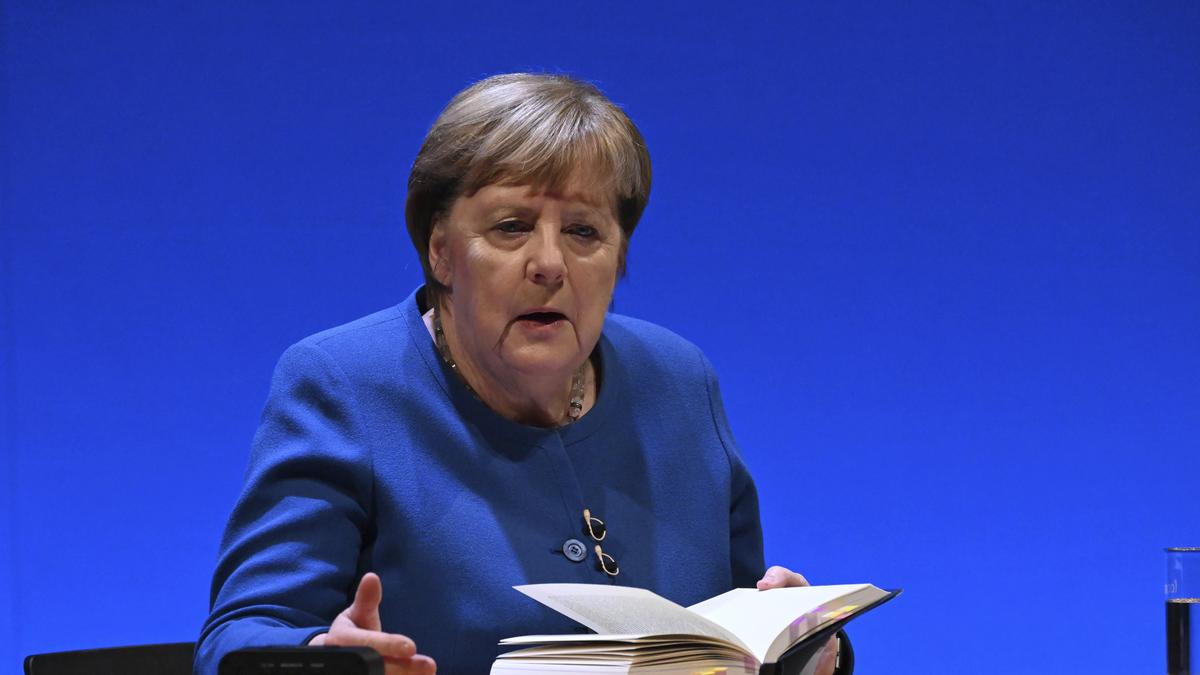
Followed attacks on minorities in India with concern, broached issue with Modi: Angela Merkel in memoirs
The Hindu
Angela Merkel and Walter Lindner express concerns about religious intolerance and communal polarization in India in their memoirs.
Angela Merkel was “concerned” about the rise of “Hindu nationalists” in India, the former German Chancellor writes in her memoirs, where she disputes Prime Minister Narendra Modi’s denial that religious intolerance increased since 2014. The references to India in her recently released 600-page autobiography entitled Freedom: Memoirs 1954-2021, focus on her relations with two Prime Ministers, Manmohan Singh and Mr. Modi, with whom her tenure in office (2005-2021) overlapped. She has also referred to the growth of the Indian economy and its importance in countering climate change, subjects that Ms. Merkel took a particular interest in.
By coincidence, the Merkel memoirs have been released even as another book on India, by Germany’s former Ambassador to India Walter Lindner, also expresses similar concerns about communal polarisation in the country, covering more closely political developments during his years in Delhi (2019-2022), as well as India’s sustained ties with Russia after the invasion of Ukraine. In What the West Should Learn from India, Mr. Lindner writes about his first visit to the country as a backpacker and musician in the 1970s, and study of Indian spirituality, as well as his more recent diplomatic tenure.
In her book, Ms. Merkel writes about her encounters with Mr. Modi, who impressed her with “visual effects” at an event at the Hanover Messe where he pitched for investment in India, introducing the three-dimensional “Make In India” lion that was akin to Mr. Modi’s holograms that he had used during his 2014 election campaign.
“I followed with concern the reports that, since Modi had taken office, an increasing number of members of other religions, predominantly Muslims and Christians, were being attacked by Hindu nationalists,” Ms. Merkel continues in her memoirs, adding that when she broached the subject, Mr. Modi “vehemently denied it and emphasised that India was and would remain a country of religious tolerance”.
Ms. Merkel makes it clear she did not accept the response. “Unfortunately, the facts said otherwise. We were unable to agree on this point. My worries remained — religious freedom is, after all, a key component of every democracy,” she writes, in the chapter Serving Germany on her meetings with world leaders. Ms. Merkel also writes about her interactions with Dr. Singh, along with whom she launched the bi-annual India and Germany intergovernmental consultations. She said Dr. Singh had told her about India’s cultural and linguistic differences, adding that “the country’s unity arises from its diversity”, and comparing it to the “European Union as a whole than with one of its member states”.
Comparing the two Prime Ministers, Ms. Merkel writes that both focused on the Indian economy, improving living standards for poorer people, and climate justice.
“In my conversations with [Dr. Singh], I came to better understand the misgivings of the emerging countries toward us, the affluent countries,” Ms. Merkel recounts. “[Mr. Modi] boosted economic growth, in particular by tackling the countless bureaucratic hurdles that lurked everywhere.”











